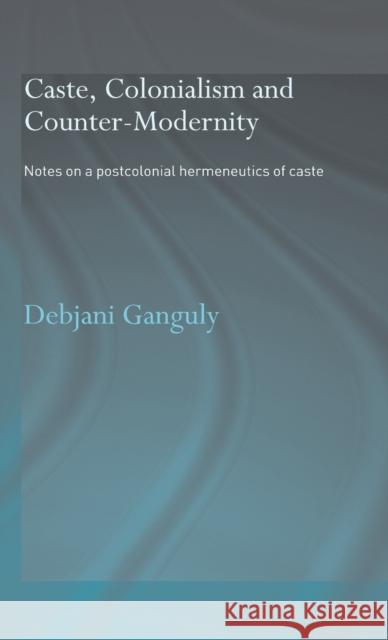Caste, Colonialism and Counter-Modernity: Notes on a Postcolonial Hermeneutics of Caste » książka
Caste, Colonialism and Counter-Modernity: Notes on a Postcolonial Hermeneutics of Caste
ISBN-13: 9780415342940 / Angielski / Twarda / 2005 / 287 str.
Caste, Colonialism and Counter-Modernity: Notes on a Postcolonial Hermeneutics of Caste
ISBN-13: 9780415342940 / Angielski / Twarda / 2005 / 287 str.
(netto: 720,05 VAT: 5%)
Najniższa cena z 30 dni: 654,86
ok. 16-18 dni roboczych.
Darmowa dostawa!
One prevalent socio-cultural structure that is peculiar to South Asia is caste, which is broadly understood in socio-anthropological terms as an institution of ranked, hereditary and occupational groups. In caste today we see a continuation of a non-modern life-form on the subcontinent that one and a half centuries of colonial rule and the forces of global capitalist modernity that such rule brought in its wake have been unable to wipe out, much to the despair of social scientists, political activists and policy makers. This book discusses the enigmatic persistence of caste in the lives of South Asians as they step into the 21st century. It begins by undertaking an investigation of the limits of sociological and secular historical analysis of the caste system in South Asia and then goes on to argue for ways of describing life-forms generated by caste on the subcontinent that supplement the accounts of caste in the social sciences. By focusing on the literary, oral, visual and spiritual practices of one particular group of ex-untouchables in western India called "Mahars," the author suggests that one can understand caste not as an essence that is responsible for South Asia's backwardness, but as a constellation of variegated practices that are in a constant state of flux and cannot be completely encapsulated within a narrative of nation-building, modernization and development.











